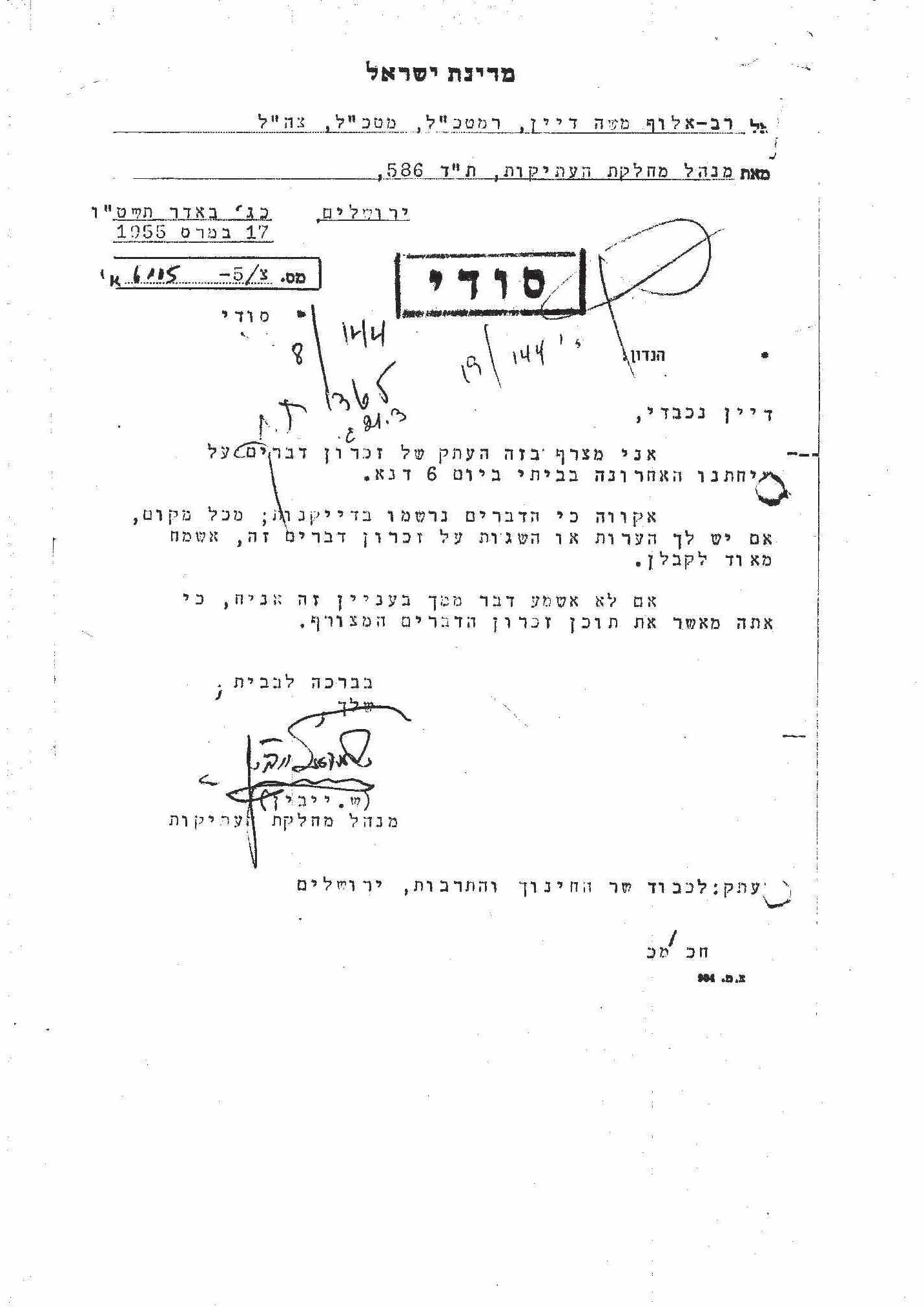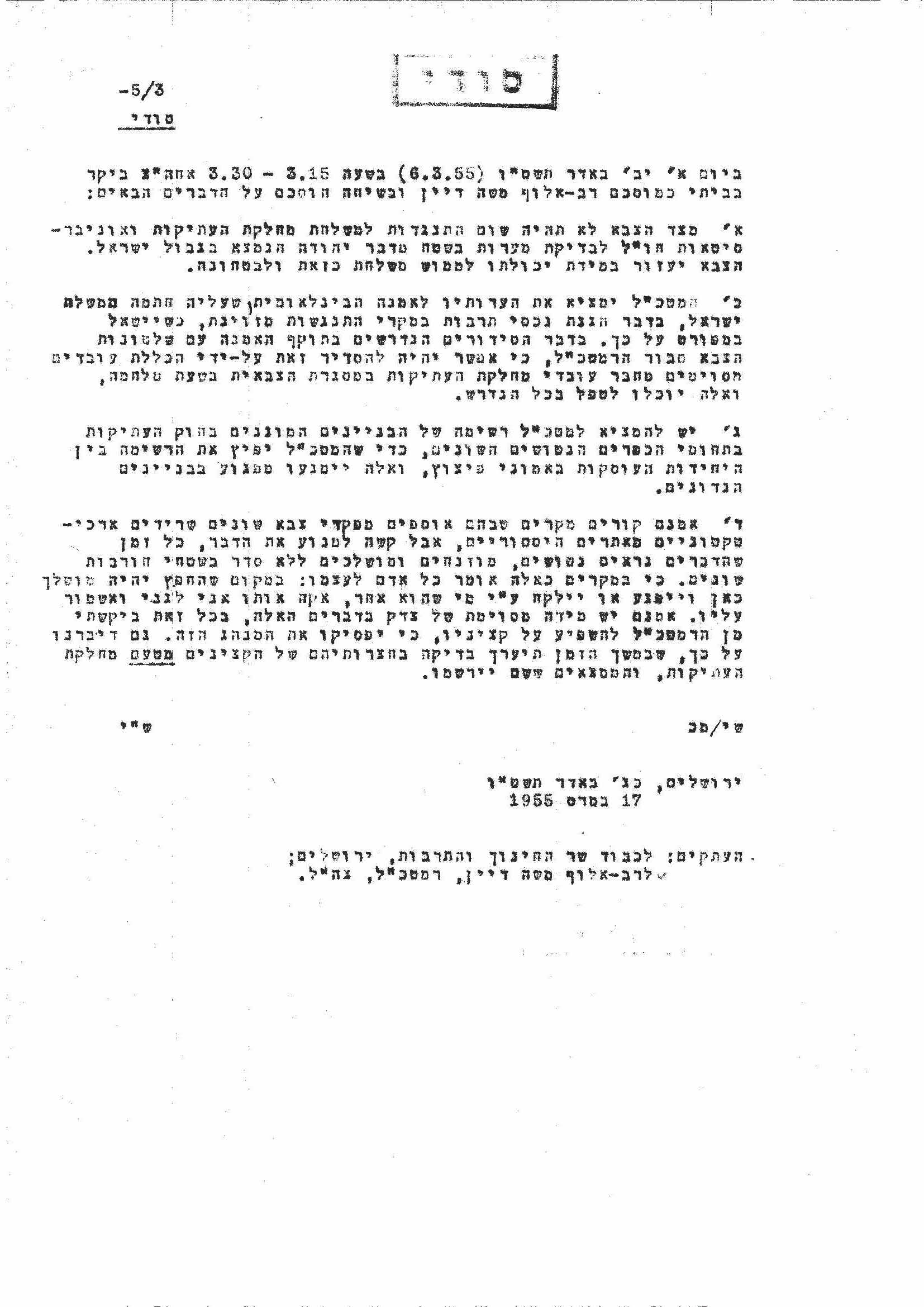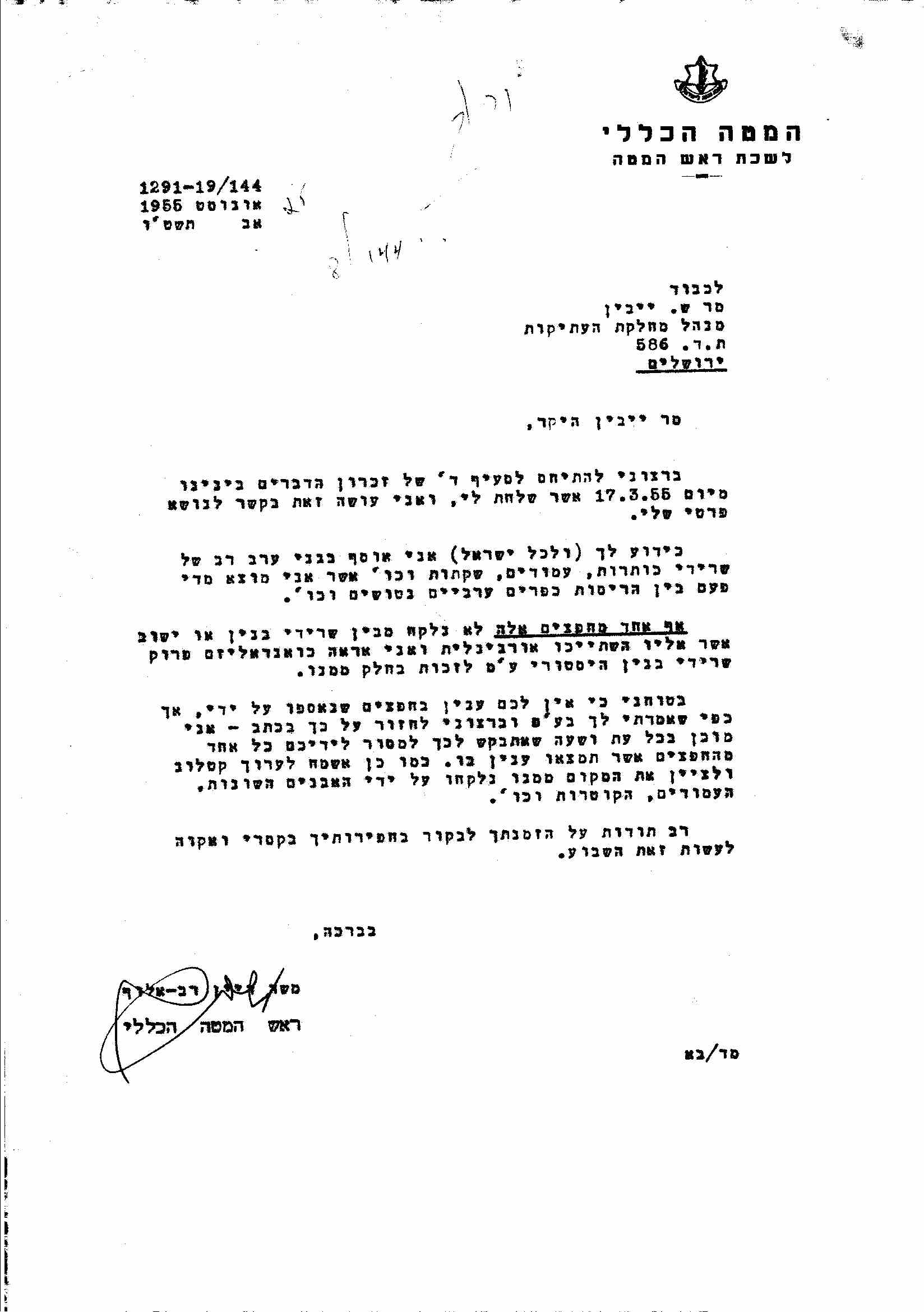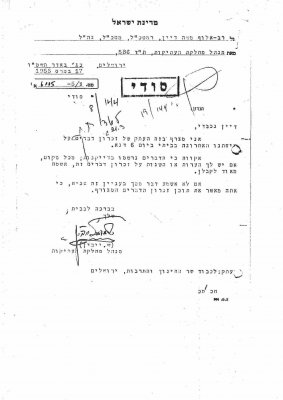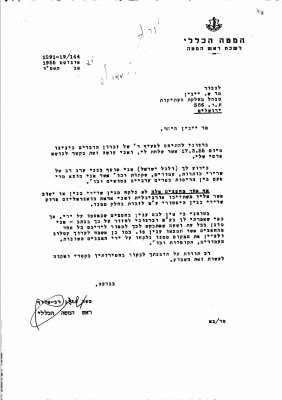On the margins of Israel’s overall policy in the 1950s and 1960s, designed to destroy the remains of depopulated Palestinian villages and erase all traces of the country’s Palestinian past – artifacts and relics of buildings were looted from the empty villages. In correspondence with Chief of Staff Moshe Dayan, the director of the Antiquities Department asked him to “intervene with his officers to end this practice.”
Moshe Dayan, a seminal figure in Israel’s early military and political history who passed away around forty years ago, was famously fond of archaeological artifacts. His habit of looting them from archeological sites in the country, often using soldiers and military equipment to remove the items and transport them to his private home in the farming community of Nahalal, has been recorded in countless stories and documents over the years. Dayan’s “private” archeological looting was in line with Israel’s policy through the 1950s and 1960s, which he helped formulate. This policy was designed to destroy depopulated Palestinian villages and erase the country’s Palestinian past. The policy was pursued sometimes against the objections of staff at the Israel Antiquities Authority, who sought to preserve Arab history and archeology. Raz Kletter’s research on this is worth mentioning.
The two letters posted here, which were found in the IDF Archive, provide direct evidence of Dayan’s artifact looting. The letters tell not only of the looting that took place in depopulated Palestinian villages, but also, that Dayan was not alone. Other officers participated, too.
Shmuel Yeivin, Head of the Antiquities Department (the institution that later transformed into the Israel Antiquities Authority) wrote to Dayan in March 1955, following a conversation they had:
“Though some incidents in which various military commanders collect architectural relics from historical sites do occur, it is difficult to prevent this so long as items appear abandoned, neglected, strewn in disorder in various sites of ruins. In such cases, anyone would tell himself: rather than having this item strewn here to be damaged or taken by someone else, I shall take it to my garden and safeguard it. While there is an element of truth to this, I nevertheless asked the Chief of Staff to intervene with his officers to end this practice. We also spoke about holding an inspection on behalf of the Antiquities Department in the officers’ gardens at some point and taking record of the artifacts found [emphasis in original].”
Several months later, in August 1955, Dayan wrote to Yeivin:
“As you (and all of Israel) know, in my garden, I collect many remains of [pillar] capitals, pillars, troughs, etc., which I sometimes find among the ruins of abandoned Arab villages, etc. […] I am sure you have no interest in the objects I have collected, but as I have told you verbally and wish to repeat in writing – I am prepared, at any time or day that I am so requested – to hand over to you any of the objects that you find of interest. I shall also be happy to catalogue and cite the location where the various rocks, pillars, capitals, etc. were taken.”
Dayan’s archeological looting continued even after this exchange with Yeivin.

